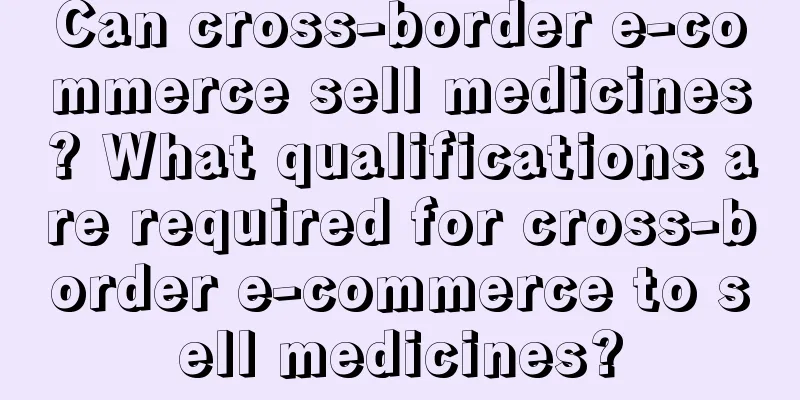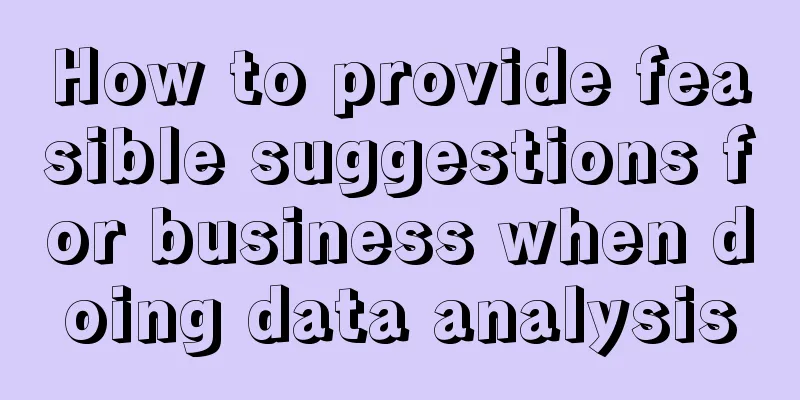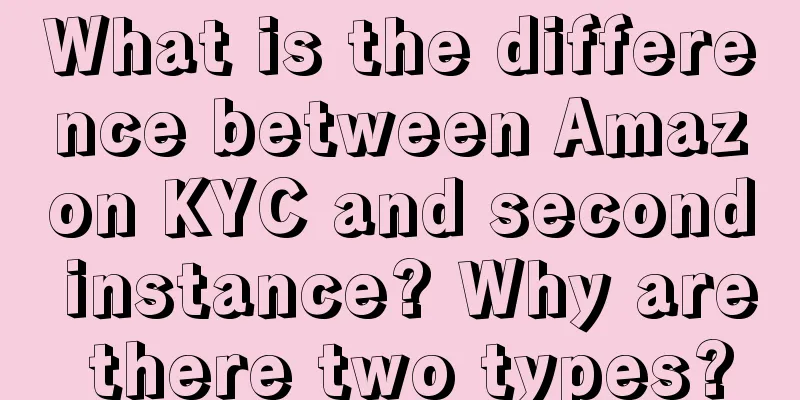Can cross-border e-commerce sell medicines? What qualifications are required for cross-border e-commerce to sell medicines?

|
Cross-border e-commerce has become part of global commerce, providing consumers with a convenient way to purchase international goods. However, when it comes to the sale of medicines, things are more complicated. This article will explore whether cross-border e-commerce can legally sell medicines, and what qualifications and regulations sellers need to meet. 1. Cross-border e-commerce and drug sales Cross-border e-commerce is a method that allows merchants to sell products and services to buyers in international markets. This sales model has been very successful in many fields, including fashion, electronics, beauty products, etc. However, the sale of pharmaceuticals is a different field because they have a direct impact on human health and life. Therefore, cross-border e-commerce sales of pharmaceuticals are usually subject to strict supervision and regulations. 2. What qualifications are required for cross-border e-commerce to sell medicines? In many countries, cross-border e-commerce sales of medicines need to meet a series of qualifications and regulations to ensure the quality, safety and legality of the products. Here are some key points that usually need to be considered: 1. Drug registration: In many countries, drugs must be registered and approved before they can be sold on the market. This usually requires registration through local health departments or drug regulatory agencies. Cross-border e-commerce sellers need to ensure that the drugs they sell have been legally registered and approved. 2. Licenses and Certificates: Sellers may need to obtain specific licenses or certificates to prove they are qualified to sell medicines. These licenses are usually issued by local health departments or regulatory agencies. 3. Quality control: Sellers need to ensure that the quality of the drugs meets relevant standards. This includes sourcing drugs from legitimate suppliers, maintaining correct storage conditions, and providing expiration dates and ingredient information for the drugs. 4. Safety: Drugs must meet safety standards to prevent adverse reactions and harm to patients’ health. Sellers need to ensure that the drugs they sell have not been tampered with or contaminated. 5. Accurate product information: Sellers need to provide accurate and clear product information, including usage, dosage, method of administration, etc. This helps ensure that patients use the medicine correctly. 6. Comply with international regulations: Sellers need to comply with cross-border trade regulations, including customs and tax regulations. International transportation of medicines is usually strictly regulated. |
<<: Alibaba International Station launches "Plan S"
>>: What does Amazon Web Services mean? What does it do?
Recommend
Understand in 5 steps - How to create a closed loop of private domain transactions worth tens of millions!
In today's business environment, the importanc...
The cold weather is pressing, does Party A still want to build a brand?
Uncertain factors make brands more cautious about ...
New and old brands compete for the Spring Festival gift box market, lively but not innovative
The Spring Festival is approaching, and the festiv...
Behind the popularity of Harbin, who can become the “city’s business card”?
Northeast China tourism has become popular this wi...
How to view sellers’ stores on Amazon? How to enter other people’s stores?
Amazon, as the world's largest e-commerce plat...
Can foreign bloggers still make money by sitting back and doing nothing?
With the rise of the traffic era, a large number o...
Is there any risk in registering an Amazon store? What are the potential risks?
It is getting harder and harder to open a store on...
Do I have to pay immediately after successfully bidding on eBay? What are some auction techniques?
There are many ways to place orders on eBay. In ad...
Going undercover in the Tustin community, I found that its road to counterattack is not easy
KFC's Crazy Thursdays are well known because i...
Taobao Ugly Things Awards Ceremony: Aesthetic Lowland or Commercial Highland?
The third Taobao Ugly Things Awards Ceremony annou...
What should I do if my Amazon store is linked? What does it mean when a store is linked?
When you open a store on Amazon, if you find that ...
520 is quiet. How can brands that cannot sell love do “reverse marketing”?
This article explores the current status of 520 ho...
Three new search revolutions: Tik Tok, WeChat, and Xiaohongshu!
As the Internet develops rapidly today, traditiona...
What is the delivery process of Shopee's local stores? Process Introduction
Merchants who run local stores on Shopee must conf...
Will Kuaishou be "marginalized" by WeChat Video Account?
With the development of WeChat Video Account, will...









